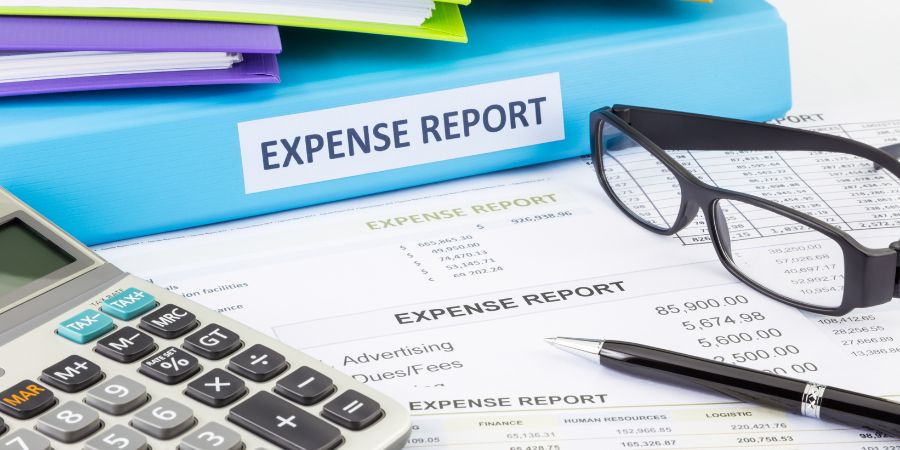As the owner of your own business, you’re going to be spending a lot of your time and money on it. You need to keep track of all these expenses to accurately report them when you file your taxes at the end of the year.
You can deduct many expenses related to running it. These are called “business expenses,” and they can be quite beneficial to your bottom line. The trick is tracking them and documenting them correctly, so that come tax time, you are ready to receive the benefits.
Unfortunately, many small business owners don’t take the time to document their expenses until after they have already paid their bills. This won’t help when tax season comes around, which is why we want to give you a hand with getting started now! Here is a quick guide on how to track your business expenses and what type of expenses you should keep track of in order to do so.
What Is a Business Expense?
Business expenses are any costs related to running and managing your business. These costs can include your office rent, utilities, insurance, employee salaries, equipment, travel costs, and other expenses that directly relate to your business’s operation.
Usually, only the amount that is above your typical, expected costs is considered business expenses. Your expected costs are what your business would cost you if you didn’t run it. Many of these costs have associated write-offs you can take advantage of by properly tracking them.
Business expenses are deducted from your income when calculating taxes at the end of the year. This lowers how much you owe the government, resulting in a lower tax bill.
Where to Track Your Business Expenses
There are countless apps and websites that you can use to track your business expenses. You could write them down on paper or use a virtual notebook, like Evernote. However, this could result in lost notes.
There are also some specialized apps designed to help you track your business’s expenses. These apps are usually designed specifically for tracking business expenses, so they may have features that others don’t.
Until you know which app you want to use, consider using your email. That way, when you need information, you can forward it to yourself for almost instant access to it while you sort through the apps that can help.
After a quick search for business expense tracker apps, you will likely find names like QuickBooks Expense Tracking, Rydoo, Zoho Expense, and Ramp, to name a few. You will have to sort through the apps to see which will be easiest for you and your business to accurately track each expense without taking so much time that you put off doing it.
How to Track Your Business’s Expenses for Taxes
In order to properly track your business expenses, you’ll need to know which ones to track. Here is a basic list of common business expenses that you should keep track of for your taxes:
- Office Rent and Utilities: You can deduct money for each square foot of your office space. You can also deduct any utility expenses that are directly related to your business.
- Office Supplies: Any office supplies you use for your business can be deducted as a business expense. This includes things like pens, paper, printer ink, etc., so make sure you always keep receipts for each of these purchases.
- Employer Taxes: You can deduct the employer portion of your payroll taxes. This includes things like Social Security and Medicare taxes.
- Employees’ Retirement: Any amounts you contribute to your employees’ retirement accounts can be deducted from your taxes. This includes 401(k)s and SEPs.
- Insurance Premiums: Amounts you pay into your insurance premiums should also be tracked to reduce your future tax bill.
Advertising and Marketing Expenses
Advertising and marketing expenses are essential business expenses that many people overlook. You can deduct these expenses as long as they are reasonable and related to your business.
Advertising and marketing can include anything from buying ad space on a billboard to paying for an ad on a website. It can also include things like hiring a branding agency to design your logo and branding materials. Hiring a social media agency to promote your business also falls into this category.
You can also deduct any online marketing costs that are related to your business. This includes things like buying ad space, hiring a marketing firm to increase brand awareness, or buying products from Amazon to resell and promote them as an affiliate.
Office Supplies and Equipment
Office supplies and equipment are another necessary business expense that you need to track. This is another expense you should track so long as it is reasonable and related to your business.
You can deduct things like printer ink, paper, and toner cartridges. You can also deduct the cost of office furniture, your computer, and other equipment that is related to running your business.
Another thing you should be aware of is that you can depreciate certain assets over time. This is when you deduct a portion of an item’s cost each year over its expected life span.
Travel and Entertainment Costs
While you could deduct travel-related expenses related to your business, you can only deduct 50% of the amount that exceeds the standard deduction. This means that if you travel for work and spend $1,000 on travel, only $500 of that can be deducted from your taxes.
Entertainment costs, however, are a bit different. You can deduct most reasonable expenses related to your entertainment, but only up to the amount of income that you earn. This means that if you make $100,000 and spend $10,000 on entertainment, you can only deduct $10,000 of those expenses from your taxes, no matter how many tickets or dinners you bought.
Professional Services
Professional services are another important business expense. This includes things like hiring an accountant, a lawyer, or hiring an outside firm to manage your website and engage with your social media followers.
It also includes hiring a bookkeeper to manage your finances and keep track of your business expenses. Having a good bookkeeper is as essential as having a good accountant. They keep track of your expenses and workflows in order to help you avoid silly mistakes and oversights.
You can deduct the cost of these services from your taxes, just like any other business expense. You might want to consider having your bookkeeper and accountant bill you for their services instead of paying them up-front each month.
For Help Tracking Your Business Expenses, Contact Protea Financial Today!
Business expenses are any costs related to running and managing your business. To properly prepare for your taxes, you’ll need to track all these expenses.
Many of these have associated write-offs you can take advantage of by properly tracking them. For help keeping track of your business expenses, contact Protea Financial. We can help keep your business organized so you can focus on growth and customer engagement.
When you need help learning how to track your business expenses properly, it’s essential you learn from the people who track them for a living. Let the experts here at Protea Financial teach you how!






